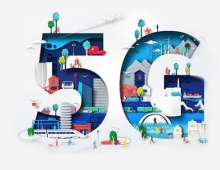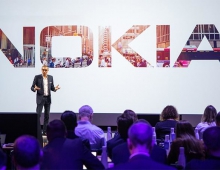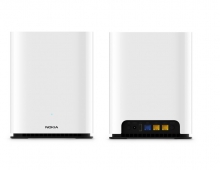
Nokia confident free music downloads will profit
Offering unlimited music downloads to phone buyers will make money for Nokia as well as record labels, the handset maker said, dismissing talk the move would come at the expense of profits.
"We expect to make money both from our traditional device sales, as well as from the 'Comes With Music' service," said Liz Schimel, head of Nokia's music business. "I can assure you that we are looking out for everyone's interests in creating these new business models, including our own."
The new music offering from Nokia, the first cellphone maker to push heavily into content, would differ from any other package on the market as users can keep all the music they have downloaded during the 12 months.
Last week Nokia struck a deal with Sony BMG to offer the label's tracks in its "Comes with Music" service, adding to last December's deal with top record label Universal.
Having the world's two largest labels on board looks set to help Nokia attract smaller music companies and challenge the dominant pay-per-track sales model for digital music.
"This new model is innovative and creates a positive situation for all stakeholders, but it does require a different way of thinking for our content partners," Schimel said, but declined to go into details.
Reports on different Internet media have suggested the world's biggest handset maker was paying $35 to Universal alone for each sold handset; and some reports suggest Nokia would be paying an extra fee for each downloaded song after the first 35 songs, potentially eroding its close to 40 percent gross margins in cellphone operations.
"Recent articles that I've seen have fundamentally misunderstood the concept behind the Comes With Music model," Schimel said.
Such unlimited download models could offer a shot in the arm to the ailing music industry, which is struggling to find ways to make up for falling CD sales.
However, the success of Nokia's service could hurt CD sales further when clients who still buy their CDs turn to phones, said Mark Mulligan, research director at Jupiter Research.
"There is inherent tension in there," he said.
The new music offering from Nokia, the first cellphone maker to push heavily into content, would differ from any other package on the market as users can keep all the music they have downloaded during the 12 months.
Last week Nokia struck a deal with Sony BMG to offer the label's tracks in its "Comes with Music" service, adding to last December's deal with top record label Universal.
Having the world's two largest labels on board looks set to help Nokia attract smaller music companies and challenge the dominant pay-per-track sales model for digital music.
"This new model is innovative and creates a positive situation for all stakeholders, but it does require a different way of thinking for our content partners," Schimel said, but declined to go into details.
Reports on different Internet media have suggested the world's biggest handset maker was paying $35 to Universal alone for each sold handset; and some reports suggest Nokia would be paying an extra fee for each downloaded song after the first 35 songs, potentially eroding its close to 40 percent gross margins in cellphone operations.
"Recent articles that I've seen have fundamentally misunderstood the concept behind the Comes With Music model," Schimel said.
Such unlimited download models could offer a shot in the arm to the ailing music industry, which is struggling to find ways to make up for falling CD sales.
However, the success of Nokia's service could hurt CD sales further when clients who still buy their CDs turn to phones, said Mark Mulligan, research director at Jupiter Research.
"There is inherent tension in there," he said.





















